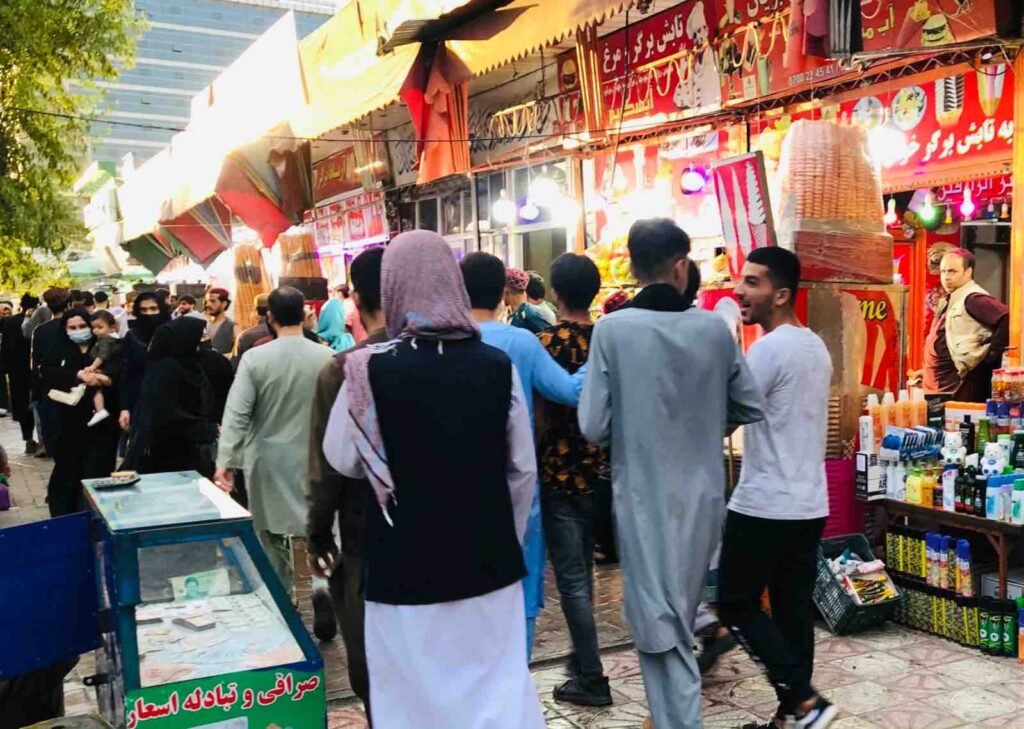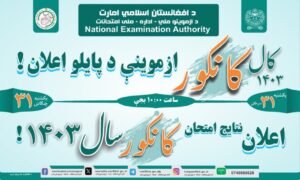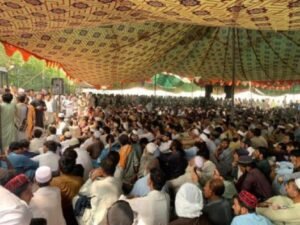Enforcing Beards, Eroding Rights: Taliban Edicts Generate Backlash in Afghanistan

Lese Maryam Market, northern part of Kabul, 2023. Photo by @AADIL for ADN
By Ilhamuddin Afghan
In Afghanistan, the Taliban’s moral police, headed by their Ministry for the Propagation of Virtue and the Prevention of Vice, are intensifying their pressure on government employees to wear beards and attend daily congregational prayers, with the threat of job termination for non-compliance.
This strict enforcement has led to complaints and mistreatment, with some employees feeling compelled to leave their jobs. Government officials across the country report feeling pressured and harassed into compliance.
Gulab, a civil servant in Nangarhar province, recounted a disturbing encounter with morality officials who demanded he grow a beard or face repercussions. Similar incidents, some escalating to physical altercations, have been documented within other government departments.
The reach of the Ministry extends beyond government offices. Morality police now patrol highways, accosting men and threatening them for failing to adhere to the beard regulations.
While Islamic scholars acknowledge the importance of prayer in Islam, many vehemently oppose the Taliban’s heavy-handed tactics and fixation on physical appearances. They argue that Islamic tradition emphasizes human dignity over outward expressions of piety.
“Throughout the history of Islam, no one has been dishonoured in the way Taliban dishonour Afghans,” religious scholar Muhammad Din Bawar, from Laghman province said.
“Human’s dignity is far superior to anything. The current actions of the Taliban are not in line with the Islamic tradition. Their acts malign the Islam,” Bawar said.
The Taliban’s control extends to barbershops, with warnings issued against trimming beards. This further tightens their grip on personal appearance, a move that has been met with widespread disapproval from both government employees and the general public.
These actions echo similar restrictions imposed in January, when the Ministry detained women for failing to wear hijabs in public, underscoring the Taliban’s increasingly stringent interpretation of Islamic dress codes. Since regaining power in August 2021, the Taliban has steadily eroded freedoms, particularly for women and girls.
Other restrictions include, the Taliban ban on women taking flights without a male chaperone, segregating women from public parks and failing to open girls’ schools as promised.
The Taliban say they will respect everyone’s rights in line with Islamic law and Afghan customs and that they have changed since their 1996-2001 rule, when they barred women from leaving the house without a male relative and forced men to grow beards.
Influenced by the Pakistani madrassas
Many Afghans believe the group’s edicts are influenced by the rigid interpretations taught in Pakistani madrassas, and diverge from true Islamic principles. They argue that the Taliban’s policies violate fundamental human rights.
Afghans often point to the contrasting realities for women in neighboring Pakistan, where they enjoy considerably more freedom, including the right to work and move about freely. In stark contrast, Afghan women face a life under severe restrictions.
A university student in Jalalabad, speaking on condition of anonymity, condemned the Taliban’s actions as “antithetical to Islamic values and basic human rights.” She pleads for a return to true Islamic principles that respect human dignity.
The international community has also joined the chorus of disapproval. The United Nations and human rights organizations urge the Taliban to respect human rights and grant greater freedoms, especially for women and girls. They call upon the Taliban to adhere to international standards and ensure the protection of all Afghan citizens.
Despite mounting international pressure, the Taliban remain resolute in enforcing their strict interpretation of Islamic law. As Afghanistan navigates an uncertain future under Taliban rule, the plight of its people, especially women and girls facing ongoing discrimination, hangs in the balance.
Ilhamuddin Afghan is a university professor based in Afghanistan.
Note: The contents of the article are of sole responsibility of the author. Afghan Diaspora Network will not be responsible for any inaccurate or incorrect statement in the articles.






